Statue of Karl Marx in Berlin. (Source: Ryan.Hellyer.kiwi)
Karl Heinrich Marx was born on May 5, 1818 in Trier, Rhineland, Prussia (now Germany), into an intellectual family of Jewish origin. His father was Heinrich Marx, a famous lawyer of the time, and his mother was Henriette Presburg, a woman of Dutch origin. In 1843, Marx married Jenny von Westphalen.
Karl Marx studied law, history, and philosophy at universities in Bonn and Berlin. In 1841, at the age of 23, Karl Marx successfully defended his doctoral thesis in philosophy at the University of Berlin and began his tireless struggle to contribute to humanity.
Desire to contribute
From a young age, Karl Marx showed a clear inclination for creative research and a desire to contribute to humanity. At the age of 17, in his high school graduation thesis titled “A Young Man’s Thoughts on Choosing a Career,” Karl Marx wrote: “History calls those who have ennobled themselves by contributing to the common good great men; experience praises the man who brings happiness to the most people as the happiest man.”
Having devoted his whole life to the ideal of class liberation and human liberation, Karl Marx left humanity with an ideological legacy of lasting value. Among them, Marx's most outstanding achievements, according to F. Engels' assessment, were three great inventions: discovering the law of development of human history, discovering the law of surplus value, and discovering the historical mission of the proletariat.
In 1848, when he was only 30 years old, Karl Marx wrote Volume I of “Capital” and “The Communist Manifesto”. These are immortal works in the treasure trove of human knowledge, the foundation for the formation of Marxism, the complete revolutionary doctrine of the proletariat.
Inheriting and developing in a genius way the three main ideological trends of the 21st century, namely classical German philosophy, classical British political economy and French socialism, Karl Marx summarized human knowledge and founded dialectical materialism and historical materialism. The Marxist economic theory and scientific socialism he founded transformed socialism from a utopia into a science, turning it into a sharp weapon of the proletariat in the struggle against capitalism.
Since its inception, Marxism has always been the shining sun, the ideological and theoretical foundation and the heroic fighting flag of the working class, working people and oppressed peoples in the struggle against imperialism and colonialism and the building of socialism.
Journey to find the truth
During his 65 years of life, Karl Marx experienced many hardships and challenges on his journey to find the truth and affirm great scientific values. In 1842, at the age of 24, Karl Marx went to Cologne, joined the editorial board and then became Editor-in-Chief of the Song Ranh newspaper. Karl Marx used this newspaper to spread progressive ideas, fight against reactionary forces, and protect the rights of the working class.
After the Rhine River newspaper was closed, in October 1843, Karl Marx went to Paris, continued to found and publish the magazine Franco-German Chronicle and contacted secret revolutionary organizations of French and German workers. In 1844, Karl Marx met Engels in Paris. From then on, the two became close friends, close comrades, and worked closely together in the struggle for the cause of the proletariat.
In early 1845, Karl Marx was expelled from France because he was considered a dangerous revolutionary. After that, Karl Marx went to Brussels, the capital of Belgium. Here Marx and Engels wrote many valuable works. According to Lenin, the works of Karl Marx and Engels written during this time "laid the basis for revolutionary materialist socialism". In 1846, Marx and Engels established a communist liaison committee to contact communist groups in Germany and abroad.
In 1847, Marx and Engels joined the League of the Just, reformed it into the League of Communists, and were commissioned by the Second Congress to draft the League's platform. In February 1848, the "Communist Manifesto" was published, marking the formation of Marxism.
After the February Revolution in France in 1848, the Belgian government feared Marx's influence and expelled him from Belgium. Marx went to Paris and was appointed Chairman of the Central Committee of the Communist League. In April 1848, Marx and Engels returned to Germany to directly participate in the revolutionary movement that was boiling there and published the newspaper Rhine River. The revolution failed, the newspaper Rhine River was banned, Marx was prosecuted and expelled from Germany. In May 1849, Marx went to Paris, but shortly after he was expelled from France. After that, Marx decided to go to London to continue living and working until the end of his life.
In London, Marx continued to work in the Communist League and wrote many valuable works to summarize the experiences of the working class during the 1848-1851 revolution. From 1850, Marx specialized in political economy. In 1867, volume I of “Capital” - Marx's main research work, which Lenin assessed as “the greatest work of political economy in our century” was introduced to readers. After that, editing the manuscripts of volumes II, III and IV of “Capital” took up most of Marx's time, but he could not complete that great work because the mental work was too stressful and the material life was often lacking, causing Marx's health to decline rapidly. On March 14, 1883, Marx passed away in the armchair where he used to work in London.
From Marx to Marxism-Leninism
The birth of Marxism ended the period of groping in the dark for millions of working people living under the oppression and exploitation of capitalists, seeking their own liberation. Later, VI Lenin inherited the work of Karl Marx and Ph. Angels, based on the basic principles of Marxism, developed Marxism in the era of imperialism, the era of proletarian revolution into Marxism-Leninism. Under the banner of Marxism-Leninism, the Russian October Revolution successfully opened a new era in the history of human development.
In Vietnam, on his journey to find a way to save the country, President Ho Chi Minh came to Marxism-Leninism, combined with the workers' movement and the patriotic movement, leading to the establishment of the Communist Party, a great turning point in the history of the Vietnamese revolution. Since its inception in 1930, the Communist Party of Vietnam and President Ho Chi Minh have always taken Marxism-Leninism as the ideological foundation and compass for action in the process of construction and development.
Some theoretical and practical issues on socialism and the path to socialism in Vietnam
Vietnam has always been steadfast in creatively applying and developing Marxism-Leninism in the specific conditions of the Vietnamese revolution, along with Ho Chi Minh Thought as a compass and a path to build socialism with its own characteristics, suitable to the conditions and context of the country. In response to the requirements and tasks set forth in the new situation, at the 13th National Party Congress, Vietnam continued to affirm that the guiding ideology throughout the process of developing, building and defending the Fatherland is to steadfastly apply and creatively develop Marxism-Leninism and Ho Chi Minh Thought.
In the recent article “Some theoretical and practical issues on socialism and the path to socialism in Vietnam”, General Secretary Nguyen Phu Trong continued to affirm: “Our Party and people are determined to build Vietnam on the socialist path on the foundation of Marxism-Leninism and Ho Chi Minh thought. National independence associated with socialism is the fundamental and consistent line of the Vietnamese revolution and is also the key point in the ideological legacy of President Ho Chi Minh. With his rich practical experience combined with the revolutionary and scientific theory of Marxism-Leninism, President Ho Chi Minh came to the profound conclusion that only socialism and communism can thoroughly solve the problem of national independence, can bring a life of true freedom, prosperity and happiness to all people and to all nations”.
The bronze statue of Karl Marx was presented to the city of Trier by the Chinese government on the occasion of the 200th anniversary of Karl Marx's birth. (Source: Xinhua)
The world does not forget
Every year, on the occasion of the birthday of the genius Karl Marx, solemn commemorative activities are held all over the world, especially in Trier, Karl Marx's hometown. On the occasion of the 200th anniversary of Karl Marx's birth in 2018, the city of Trier alone held more than 300 commemorative activities in many rich and diverse forms. The Trier government issued a special banknote with Karl Marx's image on it, and inaugurated a 3-ton, 5.5-meter-high bronze statue of Karl Marx wearing a cloak, looking pensive but powerful, holding a book in his hand. This statue is a gift from the Chinese government to the hometown of this great philosopher.
In Trier, the house where Marx was born is also preserved, now the Karl Marx House Museum is open to visitors and is a place to organize seminars and activities commemorating the genius Karl Marx. Not only in his homeland, many countries around the world such as the US, UK, Germany, France, Italy, Spain, China, Russia, Cuba... celebrate Karl Marx's birthday with activities to remember, pay tribute and honor, seminars, book readings, film screenings and concerts, exhibitions...
Speaking at the 200th anniversary of Karl Marx's birth at the Great Hall of the People in Beijing in 2018, Chinese President Xi Jinping praised Karl Marx as "the greatest thinker of modern times." President Xi Jinping sees Marxism as a tool for China to "go forward and win."
"Two centuries later, despite the enormous and profound changes in human society, the name of Karl Marx is still respected around the world, and Karl Marx's theory still shines the light of truth," the General Secretary of the Communist Party of China stressed.
International source
Source link


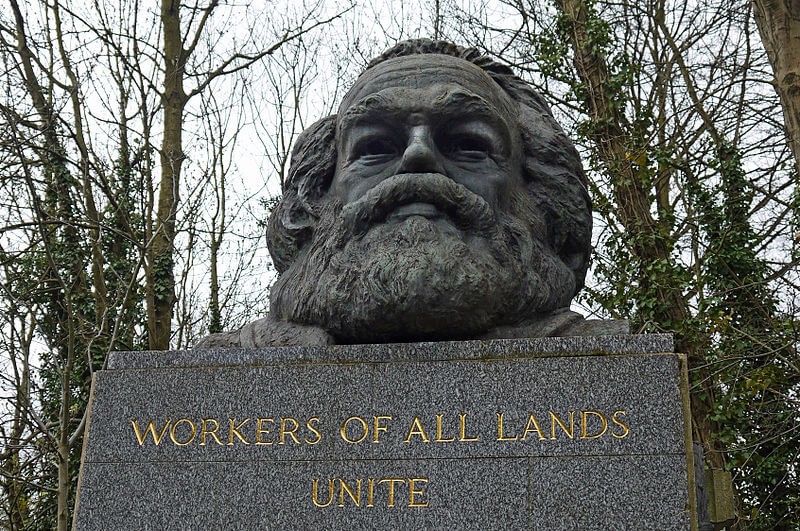
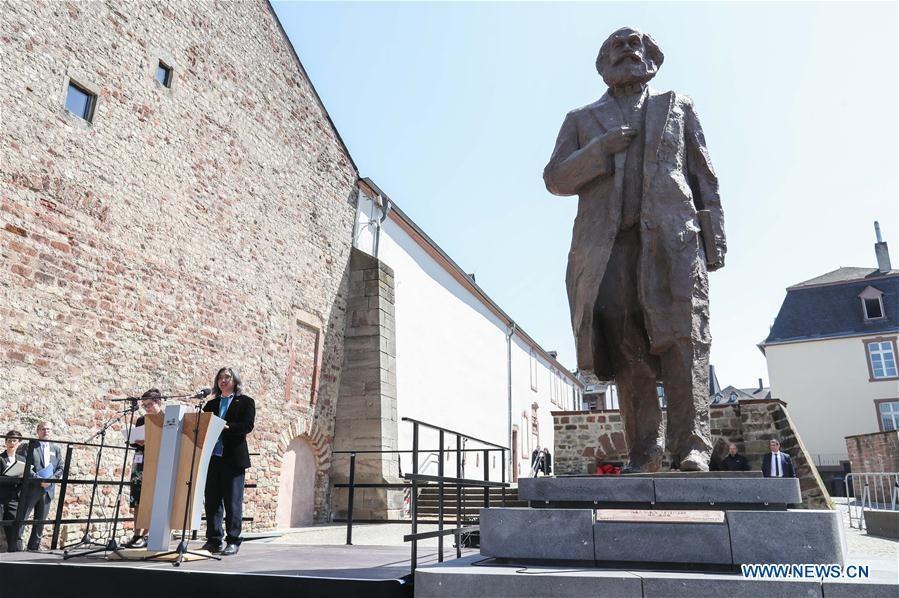
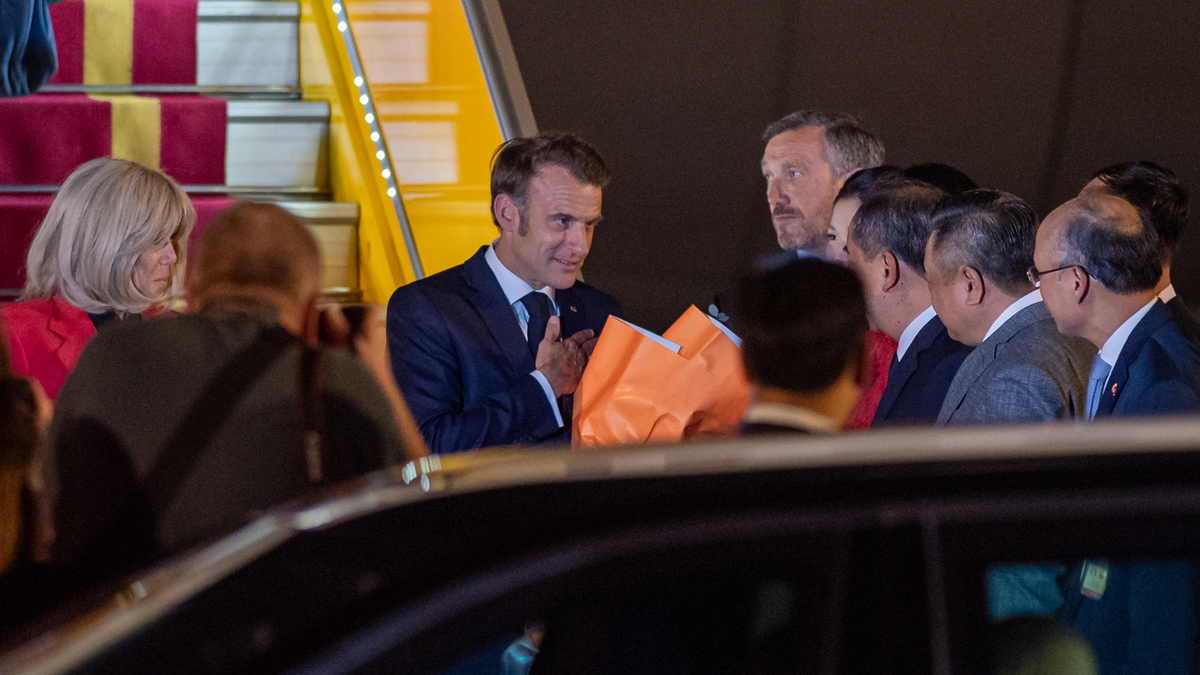
![[Photo] Funeral of former President Tran Duc Luong in Quang Ngai](https://vphoto.vietnam.vn/thumb/1200x675/vietnam/resource/IMAGE/2025/5/25/ccf19a3d8ea7450bb9afe81731b80995)
![[PHOTO] Hanoi fences off demolition of "Shark Jaws" building](https://vphoto.vietnam.vn/thumb/1200x675/vietnam/resource/IMAGE/2025/5/25/1b42fe53b9574eb88f9eafd9642b5b45)
![[Photo] Welcoming ceremony for Prime Minister Pham Minh Chinh and his wife on an official visit to Malaysia](https://vphoto.vietnam.vn/thumb/1200x675/vietnam/resource/IMAGE/2025/5/25/dc30203c3ae24da3990266ec3b29bb2d)
![[Photo] Ea Yieng commune settlement project abandoned](https://vphoto.vietnam.vn/thumb/1200x675/vietnam/resource/IMAGE/2025/5/25/57a8177361c24ee9885b5de1b9990b0e)
![[Photo] French President Emmanuel Macron and his wife begin state visit to Vietnam](https://vphoto.vietnam.vn/thumb/1200x675/vietnam/resource/IMAGE/2025/5/25/03b59c7613144a35ba0f241ded642a59)




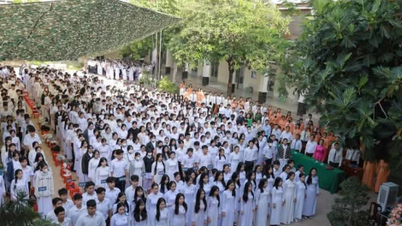













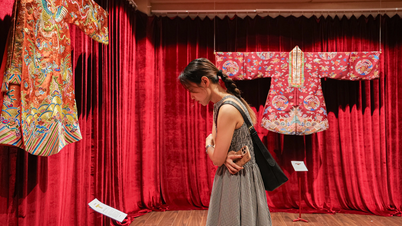





























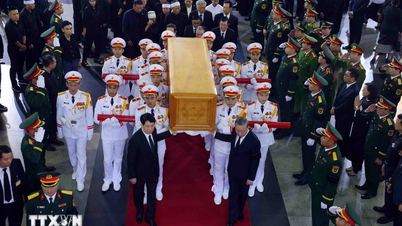
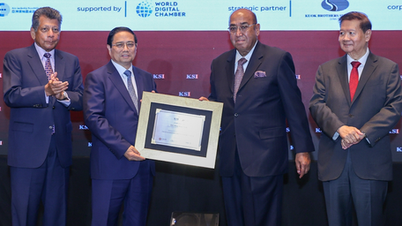





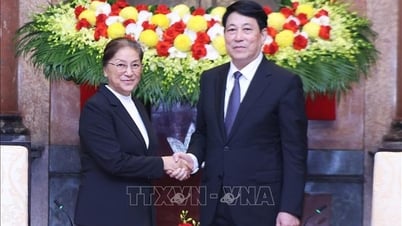












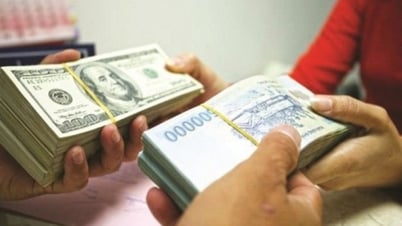














Comment (0)